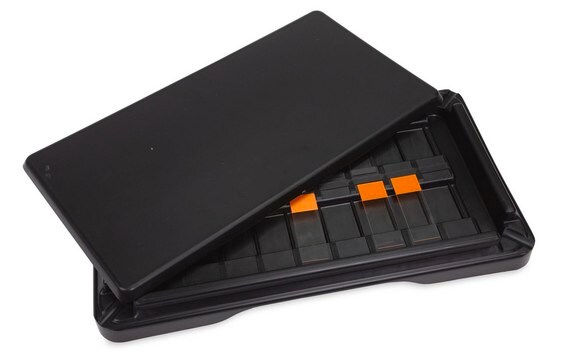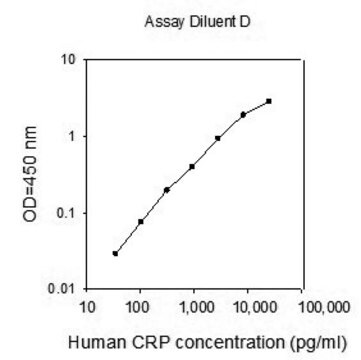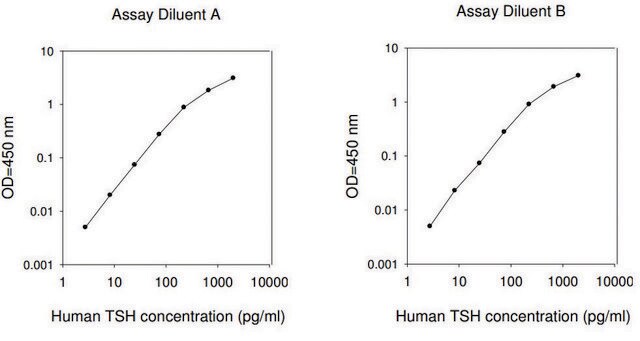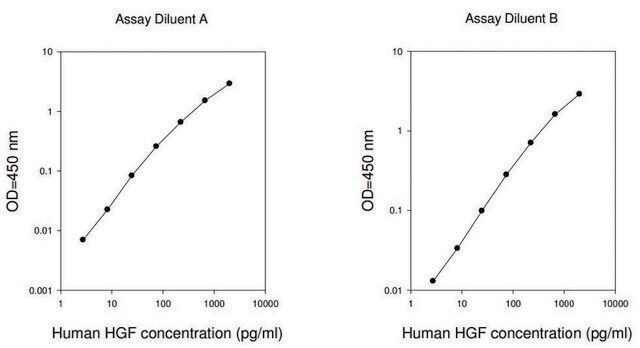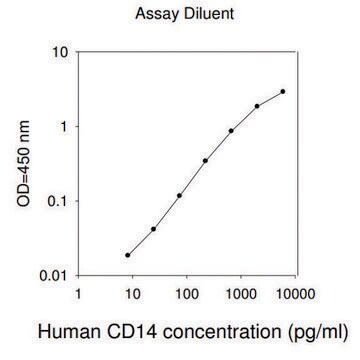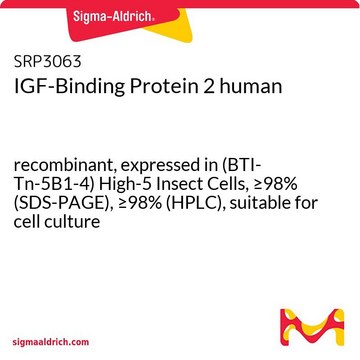RAB0082
Human CD163 ELISA Kit
for serum, plasma, cell culture supernatant and urine
Sign Into View Organizational & Contract Pricing
All Photos(2)
About This Item
UNSPSC Code:
41116158
NACRES:
NA.32
Recommended Products
species reactivity
human
packaging
kit of 96 wells (12 strips x 8 wells)
technique(s)
ELISA: suitable
capture ELISA: suitable
input
sample type plasma
sample type cell culture supernatant(s)
sample type urine
sample type serum
assay range
inter-assay cv: <12%
intra-assay cv: <10%
sensitivity: 30 pg/mL
standard curve range: 32.77-8000 pg/mL
detection method
colorimetric
shipped in
wet ice
storage temp.
−20°C
Gene Information
human ... CD163(9332)
General description
The Human CD163 (also known as hemoglobin scavenger receptor) ELISA (Enzyme-Linked Immunosorbent Assay) kit is an in vitro enzyme-linked immunosorbent assay for the quantitative measurement of human CD163 in serum, plasma, cell culture supernatants and urine.
Immunogen
Recombinant Human CD163
Application
For research use only. Not for use in diagnostic procedures.
Please refer to the attached General ELISA KIT Procedure (sandwich, competitive & Indirect ELISA)
Human CD163 ELISA kit has been used to measure the levels of CD163 in plasma samples and cell culture supernatants.
Please refer to the attached General ELISA KIT Procedure (sandwich, competitive & Indirect ELISA)
Human CD163 ELISA kit has been used to measure the levels of CD163 in plasma samples and cell culture supernatants.
Biochem/physiol Actions
Cluster of differentiation 163 (CD163) is a scavenger receptor. It is expressed on the surface of activated macrophages. This protein modulates anti-inflammatory functions and has a role in hemoglobin-haptoglobin clearance. Various cytokines influence the expression of CD163. It may be associated with hepatocellular carcinoma.
Other Notes
A sample Certificate of Analysis is available for this product.
Please type the word sample in the text box provided for lot number.
Please type the word sample in the text box provided for lot number.
Kit Components Also Available Separately
Product No.
Description
SDS
Signal Word
Warning
Hazard Statements
Precautionary Statements
Hazard Classifications
Met. Corr. 1
Storage Class Code
8A - Combustible corrosive hazardous materials
Choose from one of the most recent versions:
Already Own This Product?
Find documentation for the products that you have recently purchased in the Document Library.
Macrophage activation marker soluble CD163 may predict disease progression in hepatocellular carcinoma.
Kazankov K
Scandinavian Journal of Clinical and Laboratory Investigation (2016)
A Ross Eckard et al.
HIV medicine, 15(9), 537-546 (2014-03-22)
HIV-infected patients on antiretroviral therapy (ART) have an increased cardiovascular disease (CVD) risk as a result of heightened inflammation and immune activation, despite at times having normal lipids and few traditional risk factors. Biomarkers are needed to identify such patients
Clinical significance of soluble CD163 in polymyositis-related or dermatomyositis-related interstitial lung disease.
Enomoto Y
Arthritis Research & Therapy (2017)
Martin Hoenigl et al.
Clinical infectious diseases : an official publication of the Infectious Diseases Society of America, 69(4), 676-686 (2018-11-13)
Despite effective antiretroviral therapy (ART), human immunodeficiency virus (HIV) infection remains associated with higher morbidity and mortality, driven, in part, by increased inflammation. Our objective was to identify associations between levels of plasma biomarkers of chronic inflammation, microbial translocation, and
Monocyte-lymphocyte cross-communication via soluble CD163 directly links innate immune system activation and adaptive immune system suppression following ischemic stroke
Grant C
Scientific Reports (2017)
Our team of scientists has experience in all areas of research including Life Science, Material Science, Chemical Synthesis, Chromatography, Analytical and many others.
Contact Technical Service